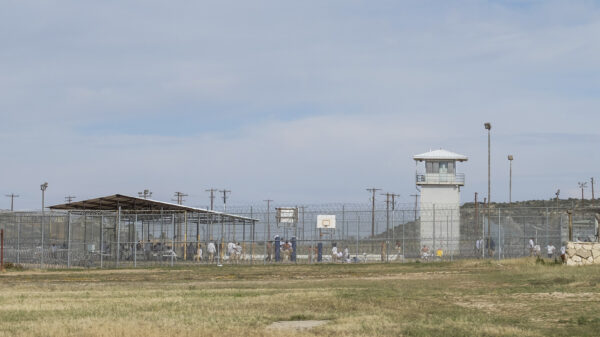- Publications >
- Report
Warehoused and Forgotten: Immigrants Trapped in Our Shadow Private Prison System
Document Date: December 1, 2015
Warehoused and Forgotten: Immigrants Trapped in Our Shadow Private Prison System (June 2014) documents our multi-year investigation into five Criminal Alien Requirement (CAR) prisons run under contract with the federal Bureau of Prisons (BOP) in Texas. Our investigation uncovered evidence that the immigrants held in these private prisons are subjected to shocking abuse and mistreatment and discriminated against by BOP policies that impede family contact and exclude them from rehabilitative programs. Meanwhile, these private prisons operate in the shadows, effectively free from public scrutiny.
What are CAR prisons? Who is in them?
Criminal Alien Requirement (CAR) prisons are private prisons operated under contract with BOP to hold low-security, non-U.S.-citizen prisoners. Unlike most federal prisons—which are run as publicly accountable federal institutions by BOP—these prisons are operated by for-profit companies (Corrections Corporation of America, GEO Group, and Management & Training Corp.). There are thirteen CAR prisons around the country, located in Georgia, Mississippi, New Mexico, North Carolina, Ohio, Pennsylvania, and Texas.
Rising criminal prosecutions of immigrants for crossing the border, offenses previously handled almost entirely by the civil immigration system, are dramatically changing who enters the federal prison system—and fueling the growth of CAR prisons. Starting in 2009, more people entered federal prison for immigration offenses each year than for violent, weapons, and property offenses combined. By 2012, BOP was holding 23,700 people convicted of immigration offenses in its custody on a daily basis. People convicted of immigration offenses now represent one of the largest categories of people in CAR prisons and of non-citizens in BOP custody generally.
Our Privatization Problem
Mass incarceration has fueled the growth of the modern private prison industry—a multi-billion-dollar enterprise that depends on and profits from our national addiction to incarceration. From 1990 to 2009, as mass incarceration accelerated, the private prison industry grew by more than 1600%.
This growth has fueled rising fortunes in the private prison industry. The three corporations that operate CAR prisons nationwide—Corrections Corporation of America, the GEO Group (GEO), and MTC—reported nearly $4 billion in revenue in 2012. The private industry maximizes it’s profits by cutting costs where it can.
Cutting Corners to Increase Profits
Medical understaffing and extreme cost-cutting measures reportedly limit prisoners’ access to both emergency and routine medical care. Martin, a 36-year old Cuban immigrant, told us he woke up in the middle of a severe asthma attack one night and did not have access to his inhaler. There was no doctor on staff that night, so he waited nearly an hour to see a nurse who did not know how to properly intubate him.
Hidden Component of Immigration System
The truth about what happens behind the walls of these private prisons often stays hidden. BOP subjects CAR prisons to insufficient oversight and accountability and exempts CAR prisons from many of the policies, rules, and regulations intended to set baselines of safe and humane treatment in federal prisons. Meanwhile, external oversight and accountability is frustrated by the isolation of prisoners from attorneys and legal services. BOP even assists private prison companies in efforts to block BOP’s own records from public disclosure.
Cut off From Civilization
There is an overwhelming sense of despair at the CAR prisons we visited. Many of the men feel forgotten. They are far from family. They have little access to legal services. They feel like commodities exploited by the private prison companies that confine them. “You lose your memory in this place,” one prisoner told us. “You keep counting days until you give up hope.”
Stay Informed
Sign up to be the first to hear about how to take action.
By completing this form, I agree to receive occasional emails per the terms of the ACLU’s privacy statement.
By completing this form, I agree to receive occasional emails per the terms of the ACLU’s privacy statement.

